L’Aquila’s Earthquake Trial on Risk Communication. Web Documents on the International Debate
The present internet bibliography is conceived as a documentary supplement to my article in Italian: Prima del terremoto. Le responsabilità della scienza e della Protezione Civile, in margine alle motivazioni della sentenza di L’Aquila [Before the Quake. The Responsibility of Science and of the Civil Protection, in the Margin of the Ruling of L’Aquila’s Trial]. Documents are presented in reverse chronological order: A) The Verdict – 22 October to 20 November 2012; B) The Trial – 14 September 2011 to 12 October 2012; C) The International Commission on Earthquake Forecasting for Civil Protection (ICEF), the Pre-Trial Investigation and the Indictment – 17 June 2009 to 3 June 2011. All websites were accessed on 21 January 2013.
A) The Verdict
2012-11-20 Helen Ashcroft: L’Aquila earthquake – shaking the scientific community
http://www.bangscience.org/2012/11/laquila-earthquake-shaking-the-scientific-community/
[“As a scientist in the 21st Century, with the amount of information available to all on the internet, it is of the highest importance that you are able to communicate your work well. This involves knowing your audience, and pitching the right amount of information at the right level and you should be able to communicate your work accurately to a wide range of people.”]
2012-11-14 Cornell University Library – S.N. Shore: Probability, Risk, and the 2009 L’Aquila earthquake
http://arxiv.org/pdf/1211.3175v1
[“The case has one benefit, however: it has shown a spotlight on a fundamental issue that the academic and research communities have often ignored – the responsibility to communicate clearly, frequently, and directly with the public at large. (…) It is the scientists’ obligation to persist in forcing the proper telling of their story, to insist that they be correctly quoted and to vigorously hound – and correct – those who distort their message. (…) The L’Aquila public was told by the spokesperson for the commission whose task was to evaluate the possibility of risk that there was nothing to worry about, that there was no indication of anything unusual. More seriously, a false reason for calm was introduced into the communication, the distortion that the public could not evaluate. But there was, in principle, a check on this: the scientists on the commission, who were in a position to verify the information being transmitted to the public, could have spoken up immediately and provided the relevant and necessary calibration to an otherwise uniformed audience. They did not. The prosecution and verdict were for that collective negligence. Nobody else was in a position to challenge the statements made in the press conference.”]
2012-11-08 Nature – Erik Aarden : L’Aquila: governance flowed exposed
http://www.nature.com/nature/journal/v491/n7423/full/491192a.html
[“Implicating a scientific advisory committee in the death of so many people in L’Aquila reflects troubling tendencies in modern Western governance: Italy seems to have made scientists co-responsible for governing the country. The court’s decision might also deflect attention away from the failures of the democratic institutions responsible for dealing with the aftermath of the earthquake.”]
2012-11-08 Nature – Peter L.F. Fast: L’Aquila: science is not a crystal ball
http://www.nature.com/nature/journal/v491/n7423/full/491192b.html
[“The public may not fully appreciate probabilities and risk assessment, but scientists must work to change this. Researchers need to be able to present information about uncertainty, prediction and probabilities in simple terms, and to convey information to the public and to government that is accurate, consistent and clear.”]
2012-11-06 EOS Transactions of American Geophysical Union: L’Aquila earthquake verdict yields aftershocks
http://www.agu.org/journals/eo/v093/i045/2012EO450003/2012EO450003_nws.pdf
[Stephen Sparks, professor of geology at the University of Bristol, noted that “We also need to think about how (…) hazard and risk with attendant uncertainties are communicated to risk managers and the public, and how to avoid scientists being manipulated by political processes and science becoming politicized.”]
2012-11-04 Scienzainrete – Nicola Nosengo (Nature):The many errors on the L’Aquila earthquake
http://www.scienzainrete.it/en/content/article/many-errors-laquila-earthquake
[It. tr.: 23/10/2012 I tanti errori sul terremoto dell’Aquila
http://www.scienzainrete.it/contenuto/articolo/tanti-errori-sul-terremoto-dellaquila]
[“The conviction was based on a notion of ‘collective responsibility’ that, I suspect, would not stand a day in the courts of other countries. Even if that causal link is proved, it is still not clear which is, according to the prosecutor, the specific event that ‘caused’ the deaths. The meeting? The press conference? The television interview of De Bernardinis? They could not all have the same weigh. At the beginning of the trial, the Public Prosecutor seemed to consider De Bernardinis and the civil protection as the ‘bad guys’ of the story, guilty of orchestrating a meeting that from the beginning was intended solely to produce a reassuring message that culminated in the infamous ‘glass of wine’ to drink in order to dispel fear (for the record, it must be acknowledged that throughout the trial De Bernardinis correctly played his institutional role, putting himself on the line appearing in almost all the hearings and talking to the press, including last night, directly and not through lawyers). At the end of the trial, instead, the Public Prosecutor ended up defining De Bernardinis as a ‘victim’ of seismologists, and their superficial analysis of the possible consequences of a major earthquake in the area. Now, either the meeting was a “media expedient” (as defined by Bertolaso in the telephone tapping of the previous day) and its ending was already written, and then scientists were at least partially fooled. Or the Civil Protection was genuinely open to the scientists’ opinion and decided what to say to the people only after listening to them. The two hypotheses are mutually exclusive, and the Public Prosecutor did indeed support both. (…) The result is a disproportionate judgment which is also inexplicably the same for all defendants. Convicting some and acquitting others would probably have been equally unjust, but at least it would have given the sense that 13-months of trial had been used to analyze, distinguish responsibilities, give directions for re-thinking risk prevention in the future, which must necessarily be grounded on greater clarity of roles: where do the responsibilities of scientific advisors end and where do those of politicians start? Who is responsible for the task of translating the uncertainty of science into effective communication to the public?”]
2012-11-02 Science – Edwin Cartlidge: Convictions Leave Italy’s Civil Protection in Chaos
http://people.na.infn.it/~zollo/Various/Science-2012-Cartlidge-589-90.pdf
[“In the call, recorded 3 days after the L’Aquila quake, Bertolaso discusses a Commissione Grandi Rischi meeting scheduled for that day with commission member and then-INGV Director Enzo Boschi. ‘Today’s meeting is aimed at this, so the truth is not to be said,’ Bertolaso said. At the end of the brief conversation, during which the meeting’s aim and ‘the truth’ were not revealed, Boschi reassures Bertolaso that ‘ours is a very cooperative attitude. We will do a press release which we will first submit to your attention.'”]
2012-11-01 Irish Times – John McCloskey: Much to be learned from the L’Aquila tragedy
http://www.irishtimes.com/newspaper/opinion/2012/1101/1224325978917.html
[“Why was this discussion left to scientists in a short public meeting at the moment of crisis? Where was the planning that should be central to preparation in earthquake-prone regions? L’Aquila was not prepared for earthquakes and someone is to blame; that someone is not a scientist. (…) Why have the local authorities not been taken to task on this issue? (…) Had scientists, well-trained in the communication of sensitive and uncertain information, been talking to people who understood the seismic hazard of their area and the nuances of probabilistic forecasting, the L’Aquila earthquake would have killed many fewer people. And there would have been no L’Aquila earthquake trial.”]
2012-11-01 Forbes – Richard Levick: Hurricane Sandy. A Shrill lesson from the L’Aquila earthquake
[Partial Italian translation:
[“The approach to the looming disaster by public officials, at least in New Jersey, was directly conditioned by extraordinary events in Italy where, just a few days before Sandy, six scientists and one government official were sent to jail for not adequately preparing the population ahead of the L’Aquila earthquake that killed over 300 people. On the Sunday afternoon preceding Sandy, the National Weather Service (NWS) in Mount Holly, N.J. provided an advisory designed to spook and shock resistant evacuees.”]
2012-10-31 Science and Development Network – Carina Fearnley: Scientists on trial: Lessons for disaster preparedness. Earthquake science was not on trial in Italy — it was about inadequate information and participation in decision-making
[“In L’Aquila, few buildings were safe, so traditionally people took the precaution of evacuation. Understanding such historical context is vital for any scientist or decision-maker providing guidance on assessing the risks involved. (…) So who is the best expert to give this advice — the scientists or the government officials? And what about local people and their expertise? While this is a constant battle in the risk management practices of many developed nations, the developing world is taking a lead with new ways of working together. Countries such as the Philippines and Indonesia already bring together scientists, experts on vulnerable populations, and local experts to make a more holistic risk assessment, and there is growing momentum to adopt this approach.”]
2012-10-30 Melissa Lane: When the experts are uncertain: scientific knowledge and the ethics of democratic judgment (p. 31-35)
http://www.law.berkeley.edu/files/When_the_Experts_are_Uncertain.pdf
[Because they failed to broaden the agenda of their public communications to provide citizens with a sound basis for exercising democratic judgment of the claims made by the genuine experts, the Italian state – perhaps in the composition of its risk commission, but also in failing to provide its full scientific view and instead offering only summary and arguably inaccurate reassurances — failed its citizens to disastrous effect.”]
2012-10-30 Nature – Nicola Nosengo: L’Aquila verdict row grows. Global backlash greets sentencing of Italian scientists who assessed earthquake risk
http://www.nature.com/news/l-aquila-verdict-row-grows-1.11683
[“There is a risk that L’Aquila could become an ‘informal precedent, in that it breaks down an aura of immunity surrounding science’, says Sheila Jasanoff, who specializes on the intersection of science and the law at Harvard Kennedy School in Cambridge, Massachusetts. (…) The chief scientific adviser to the European Commission, Anne Glover (…) says that the case underlines the importance of having clear rules on how scientific advice is given and used. ‘Before a scientist gives advice, it should be crystal clear to him or her what someone else is going to do with it’, she says, but, ultimately, elected officials should be held responsible for decisions resulting from this process.”]
2012-10-29 The New Scientist – Laura Margottini, Michael Marshall: Bugged phone deepens controversy over Italian quake
[Franco Coppi, who legally represents Giulio Selvaggi, one of the convicted seismologists, calls Bertolaso the “great absent member of the trial”. “All these scientists were sent to L’Aquila with a precise task,” he told New Scientist. “Given that they are considered responsible for insufficient communication, it would have been important as well to consider what mandate Bertolaso gave them.” (…) In January this year the Italian newspaper La Repubblica obtained a recording of a key conversation between Bertolaso and one of his officials. In the recording, translated here, Bertolaso says (…) “That is a media operation, you understand? So they, […] the leading experts of earthquakes, they will say: it is normal, these are phenomena that often occur, it is better to have one hundred shocks of the 4th grade on the Richter scale rather than silence, because one hundred shocks release energy and so there will never be a shock that really hurts.” Bertolaso now says he was repeating statements made about earthquakes in the past. “These types of statements have always been made in the 10 years that I have held this post. But obviously, I didn’t make them, all those who participated in scientific seismic risk activities made them. (…) Later in the recording Bertolaso adds: “Instead of you and me talking to the population, we make the top scientists in the field of seismology talk.” Bertolaso denies telling the seismologists what to say. “The scientific committee is absolutely autonomous and independent,” he told New Scientist. (…) A new wiretap recording was published last week, again by La Repubblica. It features Bertolaso talking to Enzo Boschi, one of the convicted seismologists, on 9 April 2009 – three days after the quake. In it he appears to order Boschi to conceal information. (…) In the recording, Bertolaso says: “At the end you’ll file a press release with the usual stuff that you can say on the subject, on the potential of a new one [earthquake], and you won’t mention the real reason for this meeting. All right?” Boschi replies: “Probably there’s a bit of confusion, surely because of my fault. The true reason for the meeting is understanding how the area will evolve.” And later: “Yes, yes, don’t you worry. I can assure you that our attitude is extremely cooperative.”]
2012-10-29 The Asahi Shimbun: EDITORIAL: Recognizing the limitations of earthquake prediction
http://ajw.asahi.com/article/views/editorial/AJ201211010052
[“What is important is to communicate relevant scientific information as well as its limitations accurately to the public so that people can take effective steps to protect their lives. It is also necessary to make clear the division of the roles between scientists and the government, which has to take ultimate responsibility.”]
2012-10-28 Understanding Uncertainty – David Spiegelhalter: More lessons from L’Aquila
http://understandinguncertainty.org/more-lessons-laquila
[“Scientific advisors owe a duty to society as a whole, must retain their independence, and should carefully avoid ‘going native’ and becoming complicit in the objectives of the agency that has requested their services. (…) People deserve to know that the risk has increased, even if it is still low in an absolute sense (as it always will be for earthquakes), so that they can apply their own thresholds for caution.”]
2012-10-27 The Observer, The Guardian – Tom Kington: L’Aquila’s earthquake. Scarred streets see battle between science and politics
http://www.guardian.co.uk/world/2012/oct/27/laquila-earthquake-battle-science-politics?newsfeed=true
[“Maurizio Cora, a local lawyer, who tried in vain to dig his wife and two daughters out alive from rubble when their apartment building collapsed, (…) said that, even if the scientists were not prepared to rule out a major quake, they were at fault for not speaking out after De Bernardinis claimed the tremors were releasing energy. ‘No one denied what he said,’ he recalled. ‘The energy release idea was nonsense, the scientists unplugged their brains and obeyed the politicians,’ said Giustino Parisse, a news editor at local newspaper Il Centro, whose son, daughter and father were killed in the quake.”]
2012-10-26 U. Divisekera, W. Grant: Why scientists should, sometimes, be on trial
http://www.crikey.com.au/2012/10/26/why-scientists-should-sometimes-be-on-trial/
[De Bernardinis “gave worryingly calming advice in the face of clear scientific advice to the contrary. Swarms of tremors in the Apennine region were known, on about 2% of occasions, to lead to large quakes.”]
2012-10-26 Science – Edwin Cartlidge: Science and law. Prison terms for L’Aquila experts shock scientists
http://www.gianfuffo.org/uploads/4/2/6/9/4269865/2012_science_338_451_laquila_prison_terms.pdf
[Willy Aspinall, a risk expert at the University of Bristol in the United Kingdom, (…) believes the trial points to a number of “salutary lessons.” He says that analysis of natural hazards needs to be “much more formalized and structured,” with advice contained in a written document and “off-the-cuff remarks” avoided. He also warns that scientists will “need to become much more litigation aware.”]
2012-10-26 Earth – Max Wyss: Voices. Judged unfairly in L’Aquila – roles and responsibilities should have been considered
[“Can the seismologists and the engineers on the commission be faulted for not having insisted that a common, factual summary report of their deliberations be written on the spot and distributed to the media? Perhaps, because one can argue that in a pressing situation, with a frightening earthquake swarm shaking up the population nearly daily, time was of the essence and a common report needed to be produced immediately. However, it may be difficult in such a situation to dissuade leaders to abandon the plan they had decided on, and to spend a few extra hours drafting the needed summary report on the spot.”]
2012-10-25 Struggles in Italy: L’Aquila’s earthquake trial: scientists as politician’s puppets
[“The accusation against members of the National Commission for the Forecast and Prevention of Major Risks is, in fact, that they “failed in their institutional duty” (Public Prosecutor’s closing speech, Italian, pdf), by not properly assessing the actual risk of lengthy seismic activity.”]
2012-10-24 Le Courrier – Samuel Schellenberg: Nouvelles répliques à L’Aquila
http://www.lecourrier.ch/102794/nouvelles_repliques_a_l_aquila
[“Le tribunal semble s’être passé d’une enquête approfondie concernant les pressions exercées sur les six par le pouvoir politique. Or, comme l’ont révélé plusieurs journaux dans la foulée du séisme, avec retranscription d’écoutes téléphoniques à la clé, l’opération de communication était solidement encadrée depuis Rome.”]
2012-10-24 Time – Stephan Faris: The Aquila Earthquake Verdict. Where the Guilt May really Lie
http://world.time.com/2012/10/24/the-aquila-earthquake-verdict-where-the-guilt-may-really-lie/
[“What the government official had told the press turned out to be completely wrong. The discharge of energy isn’t a sign of decreased risk. It’s an alarm bell. (…) A report on the Aquila quake commissioned by the Italian government (…) which recommends that governments work to provide citizens with clear information on the probability of a major earthquake, has been translated into several languages, including Japanese and Chinese. “The report has been making a big impact worldwide,” says Jordan author of the report. “I’m optimistic that the coverage that this trial is getting will help motivate people to make some important changes.”]
2012-10-24 Peter M. Sandman, Jody Lanard: Convicting and Maybe Imprisoning Scientists for Bad Risk Communication: Italy’s L’Aquila Earthquake
http://www.psandman.com/articles/LAquila.htm
[Horribly bad risk communication is all too common, and it isn’t usually prosecuted as manslaughter. But perhaps this successful prosecution will help alert scientists to their obligation to inform the public candidly about uncertain risks, instead of giving in to the temptation to over-reassure]
2012-10-23 GeoBlogy: Comment on the L’Aquila verdict by Dr Roger Musson
http://britgeopeople.blogspot.it/2012/10/comment-on-laquila-verdict-by-dr-roger.html
[The official from the Dept of Civil Protection, who was not a seismologist, gave a TV interview, in which he stated that the small earthquakes were acting as a safety valve by releasing energy; consequently a large earthquake was now unlikely; therefore residents could relax and have a nice glass of wine.There is no basis for such a statement, and this is why: the energy involved in a 6.3 magnitude earthquake like the one that struck L’ Aquila a few days after the scientists met, is about 50,000 times more than any of the small earthquakes. Therefore the sequence that had been felt up to that date had barely skimmed off the slightest fraction of the energy available]
2012-10-23 Le Nouvel Observateur – Marcelle Padovani: L’Aquila : pourquoi l’indignation n’est pas justifiée
[Un juriste, Stefano Rodotà, écrit dans la “Repubblica” qu’on n’assiste à “aucun procès contre la science”, mais à un réquisitoire contre des personnes qui ont été “réunies en toute hâte le matin du 31 mars” pour accomplir cet acte administratif “contradictoire et rassurant”, sans tenir compte des dangers réels. C’est un bien, conclut Rodotà, que le principe de la responsabilité individuelle ait été affirmé à travers cette sentence choc. Un principe qui aura des conséquences pour toutes les tragédies (éruptions, inondations, incendies, glissements de terrain et séismes) qui pourraient avoir lieu à l’avenir.]
2012-10-23 Le Point – Dominique Dunglas : L’Aquila: les scientifiques manipulés par le pouvoir politique
[La veille de cette réunion, dans une conversation téléphonique versée aux actes du procès, le chef de la Protection civile, Guido Bertolaso, explique à l’assesseur régional Daniela Stati : “J’ai convoqué les scientifiques à L’Aquila. Ils diront que la situation est normale. C’est une opération médiatique destinée à faire taire les imbéciles et à rassurer la population. Il faut dire qu’il n’y aura jamais de forte secousse.” L’opinion des scientifiques, “nous ne pouvons pas prévoir l’imprévisible”, est donc devenue : “Il n’y aura jamais de forte secousse.”]
2012-10-23 The New Scientist: Italian earthquake case is no anti-science witch-hunt
http://www.newscientist.com/article/dn22416-italian-earthquake-case-is-no-antiscience-witchhunt.html
[The seismologists got the science right, but left the job of public communication to a civil protection official with no specialist knowledge of seismology. His statement to the press was, to put it mildly, a grossly inaccurate reflection of the situation: “The scientific community tells us there is no danger, because there is an ongoing discharge of energy. The situation looks favourable.” At this point, the seismologists should have stepped in. But they did not, and the message stuck. (…) It is tempting for scientists to defer communication with the public to others who are supposedly “experts” in doing so. But this approach often leads to confusion, as evidenced by a litany of failures in the past: BSE, vaccines, genetically modified crops and many more. This cannot continue. Scientists valued for their expertise should speak for themselves rather than letting others speak for them.]
2012-10-23 Disaster Planning and Emergency Management – David E. Alexander:L’Aquila Sentence. Trial or Witch-Hunt?
http://emergency-planning.blogspot.it/2012/10/laquila-sentence-trial-or-witch-hunt.html
[The move to prosecute the representatives of national Civil Protection was unprecedented in modern European history. This is one among several reasons why few developments have been so roundly misunderstood in international debate]
2012-10-23 The Guardian – Martin : Jail Italian scientists over L’Aquila and what’s next? Suing Michael Fish?
http://www.guardian.co.uk/commentisfree/2012/oct/23/italian-scientists-charged-laquila-earthquake
[“The story is a familiar one – politicians, experts and the media coming together in an unholy mixture of miscommunication and misinformation – but the consequences are highly unusual. The scientists involved screwed up, but to prosecute people who communicate risk wrongly while acting in good faith seems excessive, and raises another question: if scientists, why not others? Why not prosecute Giuliani for his false predictions? Can we sue Michael Fish over the hurricane? Can we sue the Daily Mail for misleading the public over climate change?”]
2012-10-23 Nature – Editorial:Shock and law. The Italian system’s contempt for its scientists is made plain by the guilty verdict in L’Aquila
http://www.nature.com/news/shock-and-law-1.11643
[“There will be time enough to ponder the wider implications of the verdict, but for now all efforts should be channelled into protest, both at the severity of the sentence and at scientists being criminalized for the way their opinions were communicated. Science has little political clout in Italy and the trial proceeded in an absence of informed public debate that would have been unthinkable in most European countries or in the United States. Billi should promptly explain his decision, and the scientific community should promptly challenge it.”]
2012-10-22 Phys.org – Ella Ide: Italy scientists sentenced to jail in quake trial (Update 2)
http://phys.org/news/2012-10-italy-scientists-sentenced-quake-trial.html
[“This is a historic sentence, above all for the victims,” said lawyer Wania della Vigna, who represents 11 plaintiffs, including the family of an Israeli student who died when a student residence collapsed on top of him. “It also marks a step forward for the justice system and I hope it will lead to change, not only in Italy but across the world,” she said.]
2012-10-22 Scientific American – David Ropeik: The L’Aquila verdict. A judgment not against science, but against a failure of science communication
[“These convictions were about poor risk communication, and more broadly, about the responsibility scientists have as citizens to share their expertise in order to help people make informed and healthy choices.”]
2012-10-22 The Independent – Michael Day: Six scientists jailed for six years after failing to issue warnings ahead of deadly L’Aquila earthquake
[One of the seven convicted, Bernardo De Bernardinis, a senior figure in Italy’s Civil Protection Agency, appeared to respond casually to question about the risk at a press conference on 31 March, saying there was “no danger” because the small shocks indicated that a “continuous discharge of energy” was occurring. That advice was considered to be untrue. And many senior scientists have said the panel should have warned the public that the occurrence of 400 or so small shocks in the region in the days ahead of the disaster raised the chances of an imminent major earthquake.]
2012-10-22 The New York Times – Elisabetta Polovedo, Henry Fountain : Italy Orders Jail Terms for 7 Who Didn’t Warn of Deadly Earthquake
[Fabio Alessandroni, a civil lawyer who represents the relatives of more than a dozen victims, said the sentence showed that it is possible to have a “culture of prevention.”
“It is possible to predict a risk and to adopt measures that mitigate that risk,” Mr. Alessandroni said. “It’s what the commission is supposed to do,” taking various elements, like a city’s seismic history, into account. “And this was not done in L’Aquila.”]
2012-10-22 Nature – Nicola Nosengo: Italian court finds seismologists guilty of manslaughter
http://www.nature.com/news/italian-court-finds-seismologists-guilty-of-manslaughter-1.11640
[The defendants’ lawyers remarked that the prosecutors had not managed to prove a clear causal link between what happened at the meeting and the deaths. “The minutes of the meeting were not made public before the earthquake. There was no press release, no official statement. So how could those deaths be caused by what scientists said at the meeting?” asked Marcello Melandri, Boschi’s advocate. They also noted that the accusation relies mostly on relatives’ recollections of the victims’ decisions at the time of the earthquake, which can be unreliable.]
2012-10-22 Science Insider – Edwin Cartlidge: Earthquake Experts Convicted of Manslaughter
http://news.sciencemag.org/scienceinsider/2012/10/earthquake-experts-convicted-of-.html
[“The prosecution alleged that the information provided by the experts led to many people staying indoors on the night of 5 to 6 April 2009, rather than seeking safety outside as they had done following earlier tremors, having been trained to do so from a young age. It was that change in behavior, charged the prosecution, which caused the deaths of 30 of the victims.”]
B) The Trial
2012-10-12 Science – Edwin Cartlidge: Aftershocks in the Courtroom, Vol. 338 no. 6104 pp. 184-188
http://www.gianfuffo.org/uploads/4/2/6/9/4269865/2012_science_338_184_laquila_trial.pdf
[It. tr.. in Il Fatto quotidiano, 28/10/2012: Science e il terremoto a L’Aquila
http://www.ilfattoquotidiano.it/2012/10/28/science-e-terremoto-dellaquila/395893/]
[Judge Billi (…) must be satisfied that there was a direct causal link (…). That’s why a minor battle in the trial focused on the evidence for a causal relationship. Testifying for the defense, neurologist Stefano Cappa of San Raffaele Hospital in Milan said that a direct link is impossible to prove because press reports and minutes relaying the commission’s conclusions “typically transmitted information that was ambiguous, generic and nonspecific.” The prosecution brought in Antonello Ciccozzi, an anthropologist at the University of L’Aquila, who argued in a written report that to the townspeople, the commission was made up of “maximum scientific authorities” and fonts of “true knowledge” not available to other people.]
2012-10-09 The Independent – Michael Day: Final defence arguments due to be heard in Italian trial of scientists who ‘failed to predict’ L’Aquila earthquake
[“The occurrence of 400 or so small shocks in the region in the days ahead of the disaster raised the chances of an imminent major earthquake by a factor of 100 or perhaps 1,000, even though the absolute risk of such a quake occurring remained very low.
‘The public has a right to know about this kind of information,’ according to Professor David Spiegelhalter, Winton Professor of the Public Understanding of Risk, at Cambridge University. ‘To suggest otherwise is patronising.’”]
2012-07-13 Between Scientists & Citizens – Sally Jackson: The L’Aquila earthquake trial, p. 10-15
http://books.google.it/books?id=5VjhUmPEY94C&printsec=frontcover#v=onepage&q&f=false
[“If we wanted to choose one controversy as the focus of a cross-disciplinary multiperspectival study of expertise in public deliberation, we could hardly do better than the events surrounding the L’Aquila earhquake trial. (…) The scientists assembled at L’Aquila were not random choices from the expert community but members of the Major Risks Commission, an institutionalized component of the national public safety bureaucracy (…). De Bernardinis was instructed to convene the hearing with the specific purpose of finding a basis for reassuring the citizens (…). His six colleagues undoubtedly knew that what de Bernardinis said was false and dangerous; that is, they undoubtedly knew that beople should remain vigilant. But they did not contradict de Bernardinis, then or later (…). The Major Risks Commission clearly had a duty of care with respect to the citizens of L’Aquila (…) Scientists who take actions without thinking through potential consequences may create harm through negligence. (…) Scientists must accept that there can be negligence in their performance as scientists.”]
2012-05-31 Science Insider – Edwin Cartlidge: Earthquake experts finally testify in their manslaughter
http://news.sciencemag.org/scienceinsider/2012/05/earthquake-experts-finally-testi.html
[“De Bernardinis, who is an expert on floods, yesterday told the court (…) that his impression of ‘normal’ seismicity was reinforced by what he heard during the 31 March meeting, including the statement that more powerful tremors were improbable. ‘If they had said to me that the risk had increased I would have called Bertolaso straight away,’ he said, referring to his then boss, Guido Bertolaso. (…) Eva revealed at the time of the 31 March meeting, he didn’t realize the area around L’Aquila was subject to a swarm, and he also testified that he didn’t know that two major historical quakes in the region, in the 15th and 18th centuries, were also preceded by swarms. When the prosecution made its case to indict the seven now on trial, it contended that the commission members’ discussions at the meeting contained little real evaluation of the ongoing swarm, describing their analysis as ‘approximate, generic, and ineffective.’ During yesterday’s testimony, Boschi told the court that he went to L’Aquila expecting the discussion to be ‘more thorough’ and ‘much longer’ than the 45 to 60 minutes that it turned out to be. ‘Afterwards, I understood why it was shorter,’ he says. ‘The fundamental point was to understand whether or not one can predict earthquakes, so things ended there.’”]
2012-04-01 Annals of Geophysics – S. Cramping: Comment on the report “Operational Earthquake Forecasting” by the International Commission on Earthquake Forecasting for Civil Protection, p. 5-11
http://nora.nerc.ac.uk/18500/1/5516-9889-1-PB.pdf
[“The recently published report Operational Earthquake Forecasting: State of Knowledge and Guidelines for Utilization by the International Commission on Earthquake Forecasting for Civil Protection (ICEF) presupposes that there is no method for the short-term prediction of large earthquakes that has been demonstrated to be both reliable and skillful. This is no longer correct. (…) Note that the IASPEI Scientific Assembly, Melbourne, Australia endorses and recommends the final ICEF Report in Resolution 4, IASPEI, 2011. Consequently, these demonstrations of the unreliability of the ICEF Report suggest that IASPEI Resolution 4 needs amending.”]
2012-03-21 Epidemiology and Psychiatric Sciences – Casacchia M., Pollice R., Roncone R.: The narrative epidemiology of L’Aquila 2009 earthquake
http://www.ncbi.nlm.nih.gov/pubmed/22670407
[The authors stress the need to prevent natural disasters, instead of preventing mental disorders following natural disasters, reporting that seven Italian seismologists and scientists are on trial for manslaughter, accused to have failed to evaluate the true risks of L’Aquila earthquake]
2012-02-16 Nature – Nicola Nosengo: New twists in Italian seismology trial
http://www.nature.com/news/new-twists-in-italian-seismology-trial-1.10049
Scientific American – Nicola Nosengo: California seismologist testifies against scientists in Italy quake manslaughter trial
http://www.scientificamerican.com/article.cfm?id=california-scientist-test
[“Guido Bertolaso, former head of the Department of Civil Protection and De Bernardinis’s direct superior, had not been indicted and was originally expected to appear as a witness. But a few weeks ago a wiretap revealed that he had apparently set up the meeting to convey a reassuring message, regardless of the scientists’ opinion. He also seemed to be the source of the “discharge of energy” statement. He thus found himself under investigation and, at the beginning of the hearing, he was officially notified that he too may soon be formally indicted for manslaughter. Bertolaso (…) referred to Giampaolo Giuliani—a laboratory technician and amateur seismologist who was alarming the population with claims that a major shock was coming—and to a newspaper article that had misquoted some Civil Protection experts and stated that the shocks would soon be over. The meeting, he said, was meant to make clear that both were wrong and that no deterministic prediction could be made. As for the idea that the smaller tremors reduce the risk by releasing energy, Bertolaso insisted that he had heard it from scientists at the Italian National Institute for Geophysics and Volcanology (INGV), and that he had used the same phrase in the past without being corrected by any of his seismology consultants. Enzo Boschi, former INGV president and one of the defendants, has denied this. (…) Lalliana Mualchin, former chief seismologist for the Department of Transportation in California, testified as an expert witness for the prosecution. In 2010, when news about the indictment broke, Mualchin was among the few experts who openly criticized—and refused to sign—a letter supporting the indicted seismologists signed by about 5,000 international scientists. Mualchin said that seismic hazards were not properly assessed in L’Aquila. ‘Italy is one of the countries with the best seismic knowledge in the world. And yet look at what a 6.3 earthquake has done to this city. That knowledge was not used, and scientists are responsible for that. They were conscious of the high risk in the area, and yet did not advise the people to take any precaution whatsoever,’ he said. The problem is in part a scientific one, Mualchin said. The Italian scientists based their analysis on the frequency of earthquakes in the area. This is known as the probabilistic seismic-hazard analysis (PSHA), a method that is state of the art in many countries, but that, in Mualchin’s view, systematically underestimates seismic hazard because it does not consider extreme and rare events. ‘Frequency is not important, what really matters is the largest earthquake we can expect, the strongest one that has happened in the past. Risk prevention should be based on that,’ he said. This is the philosophy behind deterministic seismic-hazard analysis, a method that Mualchin says has been mostly abandoned by the scientific community, to the point that younger seismologists do not even learn about it. ‘PSHA is a bad model California has exported elsewhere, and we see the results here in L’Aquila,’ he told Nature after the hearing. Mualchin worries that the new building codes approved in Italy after the L’Aquila earthquake show no improvement. ‘They never consider the worst-case scenario for any particular area, and this can lead to new disasters in the future’.]
2012-01-26 Science – Edwin Cartlidge: Italian Official Added to List of Defendants in Earthquake Trial
http://news.sciencemag.org/scienceinsider/2012/01/italian-official-added-to-list.html
[“Bertolaso was added to the list of people under investigation by the L’Aquila prosecutors following the release last week of the recording of the phone call on the Web site of the newspaper La Repubblica. It is possible, according to news reports, that the case against Bertolaso will be incorporated into the trial of the seven commission members, although this would be difficult given that the trial is already under way.”]
2012-01-12 European Commission – Science for Environment Policy – David E. Alexander: L’Aquila earthquake of 2009 offers lessons in disaster response
http://ec.europa.eu/environment/integration/research/newsalert/pdf/268na2.pdf
[“The study draws a number of policy lessons from the L’Aquila disaster. These include the following: Apply the precautionary principle and take action to prepare for disaster when short-term forecasts of earthquakes are made, even if these are judged to be unreliable. (…) In L’Aquila, local communities were advised that there was no threat of an imminent earthquake and thus they took no action. Local efforts to respond to disaster should be supported and enhanced, not replaced, by national or external responses.”]
2011-12-16 Science – Editorial: Science and Law: Rattled by Quakes
http://lab.rockefeller.edu/cohenje/PDFs/376Science&LawRattledByQuakesScience2011.pdf
[“The largest issue that springs from L’Aquila is how societies can ready themselves for hazards where science is necessary but not sufficient to prepare and respond. (…) As science and technologies evolve, risk assessments and two-way conversations between scientists and governments must change. Both sides must continually determine whether laws provide scientists and administrators with clear standards for their analyses and public communications.”]
2011-11-22 Science Writers in Italy – Nicola Nosengo: The Earthquake that Risks to Shake Seismology (and the media)
[“Strangely enough, the case has raised much more interest abroad than in Italy, where national media have hitherto paid little attention to it. That is a shame, mostly because no one is questioning the role played by those very media in the case, and what media professionals, in Italy as elsewhere, could learn from it. The media are not at the bar (and rightly so). But it was the media that conveyed the messages, right or wrong, which are now at the center of the trial. TV stations edited and broadcasted those reassuring statements. (…) The media have their own logic, and it is the work of public officials and risk communication experts to learn how to work with them in order to get the right message to the population.”]
2011-11-22 The Telegraph – Michael Day: The legal aftershocks of earthquake in L’Aquila
[The victims and their families (…) are now taking centre stage in a historic trial in which science itself is in the dock and which has become a cause célèbre for the international research community. (…) Patrick McSharry, head of Oxford University’s Catastrophe Risk Financing Centre: ‘The decision about whether or not to take action hinges on an accurate real-time risk assessment and an appropriate cost-benefits analysis’. It is this ‘risk’ and ‘cost-benefits analysis’ that some say should have been communicated to the public. (…) David Ropeik, who teaches risk management at Harvard University, (…) says: ‘The expert panel took their communication responsibilities too casually. But because no-one involved in informing the public at L’Aquila had that ability or mindset, the scientists defaulted to their normal culture, that is, not talking to the public. (…) If they had sat down and gone through the commission’s discussions with members of the public or briefed a few reporters, then they probably wouldn’t be on trial now’ “]
2011-10-03 The New York Times – Henry Fountain: Trial Over Earthquake in Italy Puts Focus on Probability and Panic
http://www.nytimes.com/2011/10/04/science/04quake.html?_r=0
[The messages have to be everywhere, repeated ad nauseam. “If you want to sell earthquake preparation in a way that it affects human behavior,” said Dr. Mileti, who has studied risk communication, “you have to sell it like Coca-Cola”]
2011-09-29 Shaping Tomorrow’s World – Michael Smithson: Scientists on trial: Risks communication becomes riskier
http://www.shapingtomorrowsworld.org/Smithson_scientists_on_trial.html
[“The L’Aquila trial probably will have an inhibitory impact on scientists’ willingness to front the media or the public. But it may also stimulate scientists and decision-makers to work together for the resolution of these problems”]
2011-09-21 The New Scientist – Thomas H. Jordan: Don’t blame Italian seismologists for quake deaths
[“A few weeks after the L’Aquila disaster, the Italian government appointed an international panel of experts, which I chaired, to suggest guidelines for improving earthquake forecasting in Italy. (…) All of us who face high seismic risks can learn lessons from L’Aquila. Among them is the need to separate the role of science advisors, whose job is to provide objective information about natural hazards, with that of civil decision-makers who must weigh the benefits of protective actions against the costs of false alarms.”]
2011-09-19 Tagesspiegel – Paul Kreiner: Geoforscher vor Gericht. Sie sollen nicht ausreichend vor dem schweren Erdbeben in L’Aquila im April 2009 gewarnt haben [Sismologi alla sbarra. Non avrebbero adeguatamente messo in guardia prima del forte terremoto dell’aprile 2009 a L’Aquila]
[“Man entschied sich – wer, das wird beim Prozess zu klären sein: die Wissenschaftler oder der Zivilschutz? –, eher auf das Nichteintreten der Katastrophe zu wetten. (…) Es blieb der Eindruck einer großen, staatlich-wissenschaftlichen Entwarnung. (It. tr.: Fu deciso – da chi: dagli scienziati o dalla Protezione civile? La cosa dovrà essere chiarita nel processo – che era preferibile scommettere sul non verificarsi della catastrofe … È rimasta l’impressione di un grande segnale scientifico-statale di cessato allarme).”]
2011-09-17 The Economist: Scientists in the dock. An extraordinary manslaughter trial starts in Italy
http://www.economist.com/node/21529006
[“Thomas Jordan, an Earth scientist at the University of Southern California, in Los Angeles, who chaired an international review of earthquake forecasting in Italy in the wake of L’Aquila’s quake, (…) points out that, with the exception of an informal system in California, no country in the world has yet set up regular probabilistic earthquake forecasting that can be used to guide emergency actions. (…) Dr Jordan argues that a focus on prediction rather than forecasting held sway in Italy in the days before the quake at L’Aquila. (…) Gaetano De Luca, who is in charge of looking after the INGV’s seismographs in the Abruzzo region, of which L’Aquila is the capital, (…) claims that the increased danger in the run-up to the quake was clear, maintaining that a swarm of comparable duration, intensity and geographical concentration had not been witnessed in the area for at least 50 years. As a result, he argues, simple precautions, such as checking the buildings most at risk, should have been taken.”]
2011-09-16 BBC News Magazine – Susan Watts:Scientists in the dock over L’Aquila earthquake
http://news.bbc.co.uk/2/hi/programmes/newsnight/9593123.stm
[The mayor of L’Aquila, Massimo Cialente, hopes the trial will prompt a national debate, and make it easier for him to raise the funds and support he needs to protect people against future earthquakes. He said six days before the major quake he moved local children from a school damaged in an earlier tremor. He said he had no official budget to do that, because prevention is not a national priority. “We closed the school and we had to transfer 500 pupils. I needed money, but I started the work without the money. If the quake did not happen I would be charged for that.”]
2011-09-14 Nature – Stephen S. Hall: Scientists on trial. At fault?
http://www.nature.com/news/2011/110914/full/477264a.html
2011-09-15 Rivista Nature: «a L’Aquila errori di comunicazione»
[The suggestion that repeated tremors were favourable because they ‘unload’, or discharge, seismic stress and reduce the probability of a major quake seems to be scientifically incorrect. (…) That message, whatever its source, seems to have resonated deeply with the local population. “You could almost hear a sigh of relief go through the town,” says Simona Giannangeli, a lawyer who represents some of the families of the eight University of L’Aquila students who died when a dormitory collapsed. “It was repeated almost like a mantra: the more tremors, the less danger.” “That phrase,” in the opinion of one L’Aquila resident, “was deadly for a lot of people here.” (…) As Selvaggi warns, the number of situations in which scientists are asked to assess hazard is certain to rise. “We have an increasing number of extreme events,” he said, “and we have increasing numbers of people living in high-risk regions. It’s time to address this problem.”]
C) The International Commission on Earthquake Forecasting for Civil Protection (ICEF), the Pre-Trial Investigation and the Indictment
2011-06-03 Science – Edwin Cartlidge: Quake Experts to Be Tried For Manslaughter
http://brightmouse.org/AmericanLandscape/wp-content/uploads/2011/06/1135.full_.pdf
[Boschi told Science that he (…) maintained that he and his scientific colleagues had a responsibility to provide the “best scientific findings” and that it is “up to politicians” to translate the scientific findings into decisions. (…) Yet Jordan (…) who chaired an international commission to review earthquake predictions in Italy in the light of the L’Aquila quake (…) acknowledges the trickiness of such situations. “There is a fine line between giving information that is scientifically accurate and information that can be actionable by the public,” he notes.]
2011-06-01 Nature – Nicola Nosengo: Scientists on trial over L’Aquila deaths
http://www.nature.com/news/2011/110601/full/474015a.html
[“The prosecutor claims that because none of the other committee members immediately corrected De Bernardinis, they are all equally culpable.”]
2011-05-30 Annals of Geophysics: Operational Earthquake Forecasting: State of Knowledge and Guidelines for Implementation. Report submitted to the Department of Civil Protection, Rome, Italy
http://www.earth-prints.org/bitstream/2122/7442/1/AG_jordan_etal_11.pdf
[P. 320: The International Commission on Earthquake Forecasting for Civil Protection ( ICEF) was authorized by Article 6 of Ordinanza del Presidente del Consiglio dei Ministri no. 3757, issued on 21 April 2009. The Commission was appointed by Dr. Guido Bertolaso, head of the Dipartimento della Protezione Civile (DPC).
P. 363: Recommendation H: “DPC, in accordance with social-science principles on effective public communication and in concert with partner organizations, should continuously inform the public about the seismic situation in Italy based on probabilistic forecasting.”]
2011-05-27 Spiegel online – Axel Bojanowski: Erdbebenforscher wegen Totschlags angeklagt [Sismologi accusati di omicidio volontario]
[Wissenschaftler sollten sich vermehrt in die Risikokommunikation einmischen, schrieb der italienische Vulkanologe Flavio Dobran. Wissenschaftler würden zu oft als “gottgleich” inszeniert, sie müssten vermehrt konkrete Ratschläge für einzelne Orte geben, wie man Naturgefahren begegnete. (It. tr.: Gli scienziati, ha scritto il vulcanologo italiano Flavio Dobran, dovrebbero occuparsi di più della comunicazione del rischio: troppo spesso vengono presentati come degli “dei”. Ma nel momento in cui si vada incontro a pericoli naturali, gli scienziati dovrebbero dare consigli più concreti per ogni singolo sito.)]
2010-10-15 Journal of Natural Resources Policy Research – David E. Alexander: The L’Aquila Earthquake of 6 April 2009 and Italian Government Policy on Disaster Response
http://www.tandfonline.com/doi/full/10.1080/19390459.2010.511450#tabModule
Jason K. Levy, Chennat Gopalakrishnan: A Policy-Focused Approach to Natural Hazards and Disasters—Towards Disaster Risk Reduction (DRR) (p. 318-319)
http://www.tandfonline.com/doi/pdf/10.1080/19390459.2010.516900
[“Alexander identifies six important policy lessons of the L’Aquila earthquake disaster. First, whether short-term earthquake predictions are official or amateur, the precautionary principle should be employed. Second, monitoring and warning systems must be backed by robust and local emergency response mechanisms.”]
2010-07-13 Flavio Dobran: Reply to “AGU (American Geophysical Union) Statement: Investigation of Scientists and Officials in l’Aquila, Italy, Is Unfounded”
http://www.westnet.com/~dobran/agureply.html
[“In Italy, the members of High Risk Commission or Commissione Grandi Rischi (Commission, for short) have an almost god-like prestige in the sense that they are perceived by the media as being the only individuals capable of commenting on any and all aspects of natural hazard research and management. These individuals are not only used by the Italian politicians to discharge their responsibilities when it comes to managing the risks associated with earthquakes, volcanoes, landslides, and other natural hazards, but also, in return, are charged with the control of all research resources in these areas. (…) If one accepts public funds and has the ultimate responsibility of deciding how to manage them (either by supporting scientific research proposals or otherwise) and is playing the double role of a scientist and a politician, one is also responsible for both the scientific and social consequences of his or her actions. Let us not forget that the Commission members are also responsible for drafting and promoting the unreliable Vesuvius Evacuation Plan, and as a consequence will be also accountable for the consequences in the Vesuvius area when the Neapolitan volcanoes erupt, because they are directly or indirectly responsible for politicizing this plan and suppressing the development of alternative volcanic risk management technologies that could save many lives and better protect the personal and public properties. The indicted individuals should, therefore, respond to l’Aquila prosecutors for both their scientific and their social responsibility of not advising the elected officials to maintain the earthquake alert level.”]
2010-07-01 blogs.nature.com – Daniel Cressey: Seismologists on trial triggers scientific debate
http://blogs.nature.com/news/2010/07/_seismologists_on_trial_trigge.html
[“Following the indictment of the six, more than 5,000 scientists and other professionals from different countries signed an appeal letter to the President of Italy, Giorgio Napolitano. They sought to remind Italian authorities that scientists should not be held accountable for failing to predict an earthquake (…). Lalliana Mualchin, a retired chief seismologist at the California Department of Transportations (…) wrote in a letter to Nature that (…) signing the solidarity appeal without discussing the methods used in L’Aquila is a disservice to citizens”]
2010-06-22 Nature – Nicola Nosengo: Italy puts seismology in the dock
http://www.nature.com/news/2010/100622/full/465992a.html
[“Before the indictment, Boschi had criticized the Civil Protection Agency’s handling of the 31 March meeting. ‘Such a meeting’, he stated in a letter on 16 September 2009 to Guido Bertolaso, the head of the Civil Protection Agency, ‘should have lasted hours if the Civil Protection Agency really wanted to consider all the data. Instead it only lasted one hour, and it was not followed by a joint statement but by a press conference about which we were not informed.’ The Civil Protection Agency responded by asking Boschi why he waited six months before objecting to the nature of the meeting, and stated that Boschi ‘never explained what specific actions’ the department should have taken to reduce the risks from a potential earthquake.”]
2009-10-12 Earth-prints.org: Scientific information: problems and responsibilities
http://www.earth-prints.org/handle/2122/5455
http://www.earth-prints.org/bitstream/2122/5455/1/Di%20Capua_Peppoloni_Pribram%202009.pdf
[“Scientists must act in the field of information, preparing the society to discriminate the falsities, forcing the media to put more attention in the quality of the data and their interpretations. A more aware society will require a more aware media system.”]
2009-06-17 Presidency of the Council of Ministers – Civil Protection Department: Recovery Status Report from Italy EQ of April 2009, p. 26-32: International Commission on Earthquake Forecasting for Civil Protection (ICEF)
http://www.amracenter.com/doc/news/IRP_Finale17giugno09.pdf
http://www.protezionecivile.gov.it/jcms/it/commissione_sismologi.wp
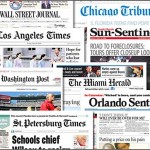

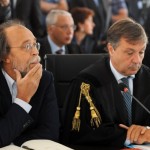
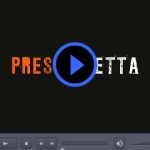









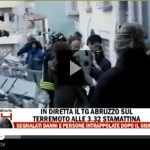
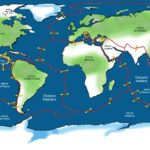
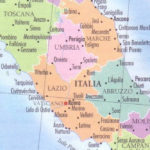
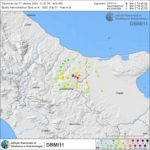
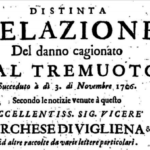
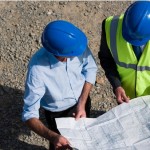
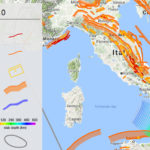
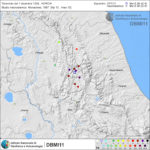
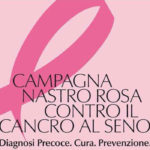
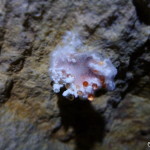
 6APRILE.IT E' UN BLOG SENZA SCOPO DI LUCRO! sul terremoto che ha ucciso 309 persone a L'Aquila il 6 aprile 2009. Viene aggiornato senza alcuna periodicità e pertanto non è da considerarsi una testata giornalistica o in ogni caso un prodotto editoriale ai sensi della legge n.62 del 7.3.2001. L'obiettivo è quello di ricordare le vittime e sostenere le persone che stanno ancora affrontando gli effetti di quella tragedia e dei successivi terremoti del 2016 e del 2017. Tutte le immagini di questo sito sono ampiamente diffuse su Internet e sono qui utilizzate senza alcuno scopo commerciale; non è intenzione di questo sito appropriarsi indebitamente dei contenuti protetti da diritto d'autore, quindi se detenete il copyright di qualsiasi contenuto, contattateci e (secondo vostra indicazione) lo rimuoveremo o ne indicheremo l'autore. Un ringraziamento speciale a tutte le persone che aiutano questo sito a restare in vita.
6APRILE.IT E' UN BLOG SENZA SCOPO DI LUCRO! sul terremoto che ha ucciso 309 persone a L'Aquila il 6 aprile 2009. Viene aggiornato senza alcuna periodicità e pertanto non è da considerarsi una testata giornalistica o in ogni caso un prodotto editoriale ai sensi della legge n.62 del 7.3.2001. L'obiettivo è quello di ricordare le vittime e sostenere le persone che stanno ancora affrontando gli effetti di quella tragedia e dei successivi terremoti del 2016 e del 2017. Tutte le immagini di questo sito sono ampiamente diffuse su Internet e sono qui utilizzate senza alcuno scopo commerciale; non è intenzione di questo sito appropriarsi indebitamente dei contenuti protetti da diritto d'autore, quindi se detenete il copyright di qualsiasi contenuto, contattateci e (secondo vostra indicazione) lo rimuoveremo o ne indicheremo l'autore. Un ringraziamento speciale a tutte le persone che aiutano questo sito a restare in vita. 6APRILE.IT IS A NON-PROFIT BLOG! about the earthquake which killed 309 people in L'Aquila, Italy, on 6 april 2009. The aim is to remeber the victims and to support local popuation which is still facing the effects of that tragedy and of the subsequent 2016 and 2017 earthquakes. All pictures and other media on this site are widely spread on the internet and are used here without any commercial purpose; it is not the intention of this site to misappropriate copyrighted content, so if you own the copyright of any content, just contact us and we will remove it. Special thanks to all the people who help in keeping this website alive.
6APRILE.IT IS A NON-PROFIT BLOG! about the earthquake which killed 309 people in L'Aquila, Italy, on 6 april 2009. The aim is to remeber the victims and to support local popuation which is still facing the effects of that tragedy and of the subsequent 2016 and 2017 earthquakes. All pictures and other media on this site are widely spread on the internet and are used here without any commercial purpose; it is not the intention of this site to misappropriate copyrighted content, so if you own the copyright of any content, just contact us and we will remove it. Special thanks to all the people who help in keeping this website alive.